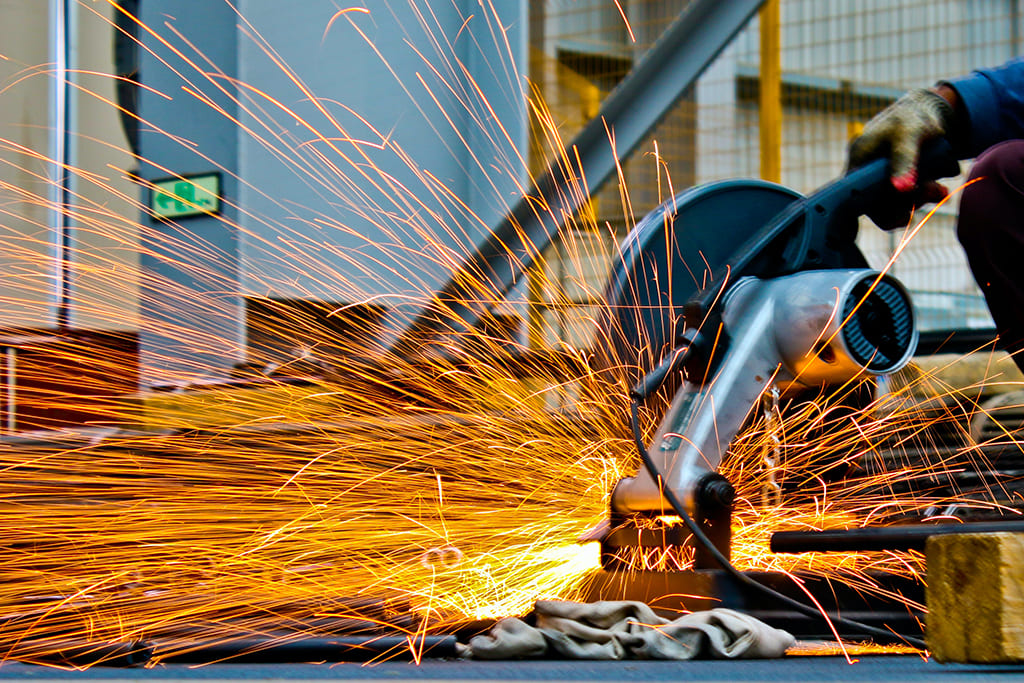What is the goal of every asset-based manufacturing company? Finding ways to decrease production cost and increase production efficiency, leading to bigger profit. However, that means that not just manpower, but also machinery, equipment, supply chain and the warehouse need to function flawlessly and at their optimum. In reality, one of the main challenges that manufacturers face is unplanned downtime caused by failure of machinery. Using Artificial Intelligence (AI) can help overcome these and many other obstacles relating to the manufacturing business, improve operational efficiency, launch new products, customise product design and plan future financial actions.
Here are top 10 applications of AI in manufacturing:
- Predictive maintenance. In the US, 42% of unplanned downtime results from machinery failure, and regular maintenance of machinery is one of the biggest cost centres manufacturers have. With the advancements in AI, it is now possible to build predictive models that can foresee and predict future machinery performance and possible malfunction. This enables manufacturers to take necessary measures before problems occur, saving time and resources.
- Defect detection. Most manufacturing assembly lines do not have automated systems or technologies put into place to identify defects in finished products. Workers need to manually check each product. By incorporating AI, with its self-learning capability, into the process, manufacturers can now have a smarter defect detection system that frees the human from the repetitive work of manual verification.
- Human-robot collaboration. While more jobs are being taken over by robots, workers are being trained for more advanced positions like in product design and equipment maintenance. In most manufacturing settings, collaborative robots working alongside human workers are now being deployed as an extra set of hands.
- Generative design. Generative design is where a program is built using advanced technologies, to generate a number of outputs that meet specified criteria. It enables an engineer to input their design goals and parameters and cost constraints into generative design software. This software then explores possible configurations and provides the best design options. This enables a manufacturing company to explore design ideas much quicker than with a real person designing a product.
- Quality assurance. AI in manufacturing that has turned previously manual and tedious tasks into automated processes. By using AI and image processing, engineers can now develop algorithms that can automatically evaluate and establish whether an item has been perfectly produced.
- Digital twins. A digital twin means a virtual representation of a product, process or system that a business can use to make model-driven decisions, rapid product development and operational performance improvement.
- Demand prediction. By developing machine learning models that run predictive analysis algorithms a manufacturer can estimate market demands by looking for patterns in location, socioeconomic and macroeconomic factors, among other customer behaviours.
- Supply chain management. Handling the supply chain management manually, poses a significant time and energy drain on the workers and company resources. AI and behavioural analytics have made supply chain management systems much smarter and more efficient. For example, with the right team of skilled software engineers, a manufacturer can develop AI tools and apps for optimising warehouse management and logistic operations, like production, delivery, and fleet operations.
- Inventory management. Since machine learning is better at handling demand forecasting and supply planning, it can be used to successfully design solutions that promote inventory planning activities. A demand forecasting tool that is powered with AI will give a manufacturer more accurate forecasts than traditional demand forecasting methods that are always prone to human bias and errors.
- Costumer service. By employing AI in manufacturing, companies can develop solutions for analysing customer behaviour, identifying patterns as well as predicting future outcomes. Also, implementing AI solutions in customer service has added benefits like quick response times and personalised experiences which lead to improved relations.
Source: Global Trade
May 08, 2021













